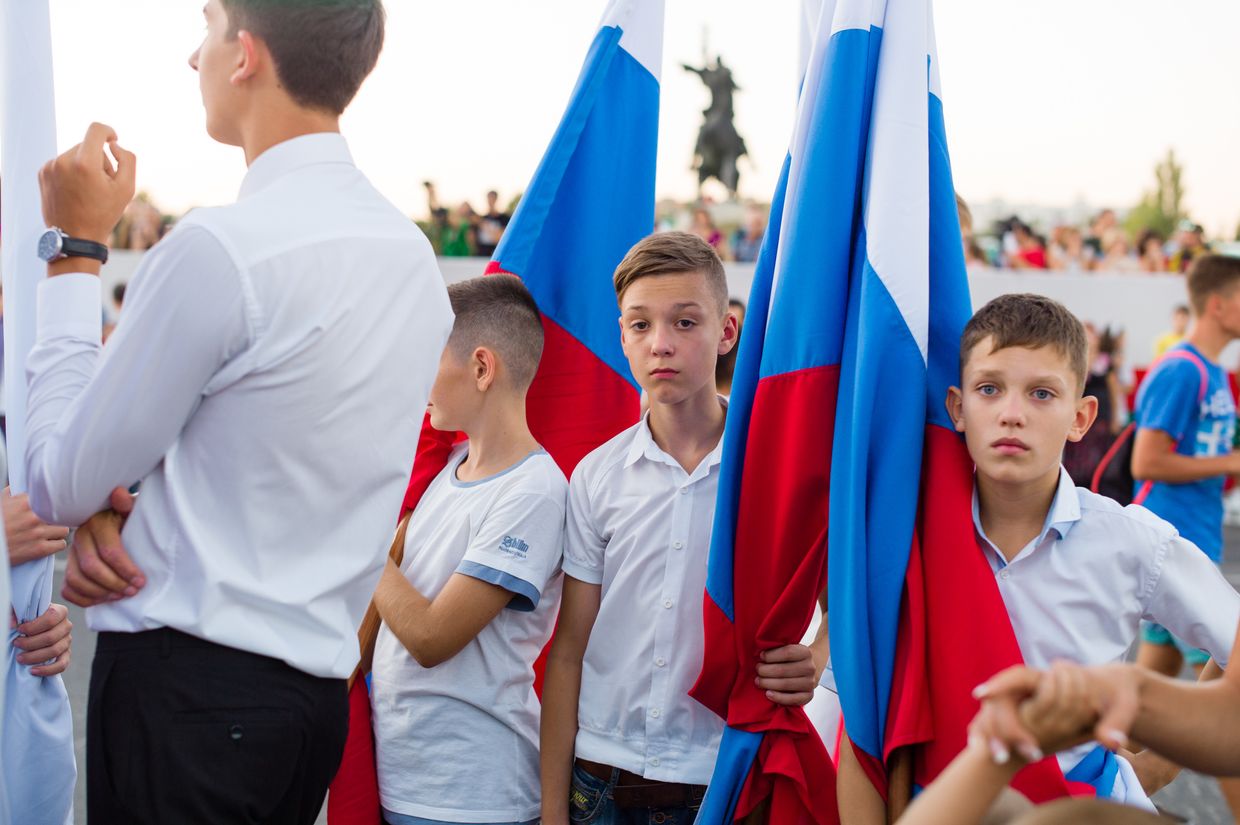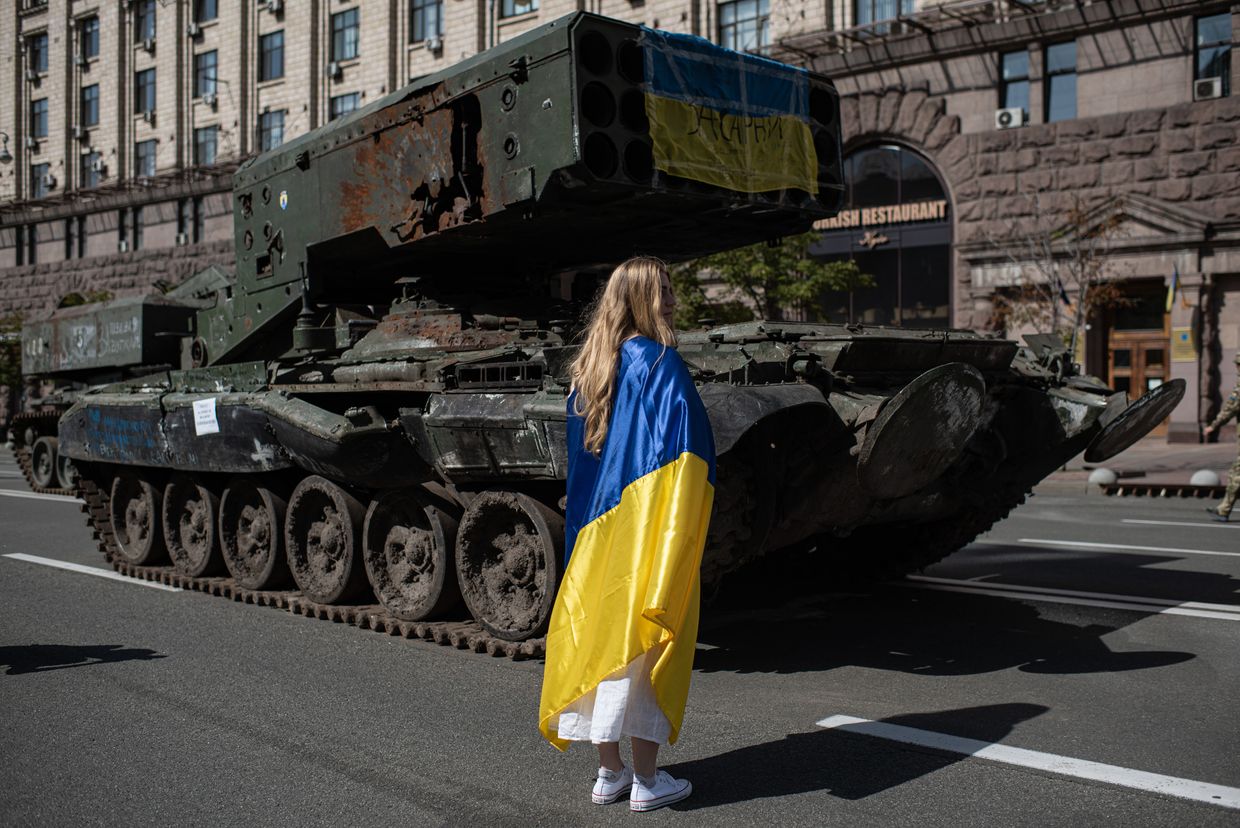The Counteroffensive: What UK Labour’s landslide election means for Ukraine

Labour Party leader Keir Starmer takes a selfie during the launch of Labour's Local Election campaign in Swindon, England, on March 30, 2023. (Leon Neal/Getty Images)

Alessandra Hay
The United Kingdom has been a leader in rallying world support for Ukraine, and we expect that to remain the same under a Labour government. Although Keir Starmer was elected as Labour Party leader under a non-interventionist platform, the full-scale invasion of Ukraine has shifted U.K. politics. There is near-unanimity across the parties on the appropriateness of backing Ukraine.
At the start of the full-scale invasion, then-U.K. Prime Minister Boris Johnson faced numerous scandals and criticism over his handling of the COVID pandemic. In Ukraine, Johnson became a hero: By the time he resigned on July 7, 2022, the U.K. was the largest supporter of Ukraine after the U.S., providing 3.8 billion pounds in aid. Johnson was also one of the first leaders to visit Kyiv during the war.
In August, following Johnson’s resignation, President Volodymyr Zelensky awarded him the Order of Freedom, Ukraine's highest honor for foreigners. Support for Ukraine did not waver as the U.K. went through three prime ministers in 2022.
With a cost-of-living crisis putting Britain’s poverty rate at 18% and failures in domestic policy, polls have long shown Conservatives trailing behind Labour. In May, the International Monetary Fund (IMF) released positive economic predictions, showing stabilizing inflation. U.K. Prime Minister Rishi Sunak, knowing the situation for his party was unlikely to improve, called for a snap election.
Following his call for a national election, Sunak announced that the U.K. would provide Ukraine with an additional 250 million pounds. He has focused on Conservative successes in foreign policy, particularly Ukraine, while portraying Labour as weak on defense.
“It is clear from the evidence Russia does not want us to be re-elected,” Sunak said during the campaign. “Labour will cut U.K. defense spending on day one. This will embolden our enemies and send a signal to our allies that Britain is not with them any more.”
Meanwhile, Starmer was elected Labour Party leader on a manifesto that sought to restrict military action abroad:
“No more illegal wars. Introduce a Prevention of Military Intervention Act and put human rights at the heart of foreign policy. Review all U.K. arms sales and make us a force for international peace and justice,” reads his manifesto from 2020.
However, since the full-scale war, his policies have shifted. In June, Starmer vowed to make the U.K.'s military “fit to fight” within the first year of a Labour government and said they were “absolutely committed to spending 2.5 percent of GDP on defense as soon as possible.” He has also pledged to continue providing 3 billion pounds a year in aid to Ukraine.
“We in this house have a duty to stand on the shoulders of giants and support Ukraine’s fight for freedom, liberty and victory,” said Starmer when Zelensky visited the U.K.
Overall, the U.K. government’s support for Ukraine has totaled 9.3 billion pounds, including 4.7 billion pounds in non-military aid. The country has also provided a vast array of military equipment and has trained over 35,000 Ukrainian troops.
There was previously a wing of the Labour Party staunchly against providing military aid, led by former Labour Party leader Jeremy Corbyn, who advocates for the U.K.'s nuclear disarmament and is against sending aid to Ukraine. This segment of the party has been stifled in recent years. Last year, Starmer banned Corbyn from standing as a Labour Party MP.
“With my changed Labour Party, national security will always come first,” said Starmer earlier this month.
Although economic problems are prompting Britain’s historic swing to the left, its neighbors, experiencing similar economic stress, are moving in a different direction. This Sunday, on July 7, France will hold the second part of a snap election called by French President Emmanuel Macron. The far-right National Rally party won close to a third of votes in the first round of voting – a high-water mark for that movement.
If the right takes control, Macron would have less control over domestic affairs but would still be influential in making foreign policy decisions.
At the start of the full-scale war, Macron was criticized for trying to negotiate with Russian President Vladimir Putin. It was reported that Macron tried to persuade Zelensky to give up land to Russia to avoid “humiliating” Putin. However, since then, Macron has changed course: he has repeatedly suggested that sending French troops to Ukraine is a possibility, and in May he talked with EU allies over a plan to do so. In the first year and a half of the full-scale war, France gave $4.1 billion to Ukraine in military aid.
However, Marine Le Pen has shown that if National Rally wins the premiership, she would try to hinder the President’s power on Ukraine:
“Chief of the armed forces, for the president, it is an honorary title since it is the prime minister who holds the purse strings," Le Pen said in an interview with French media. She continued to say there were “red lines” and Macron would not be able to send troops to Ukraine.
Editor’s Note: The opinions expressed in the op-ed section are those of the authors and do not purport to reflect the views of the Kyiv Independent.













